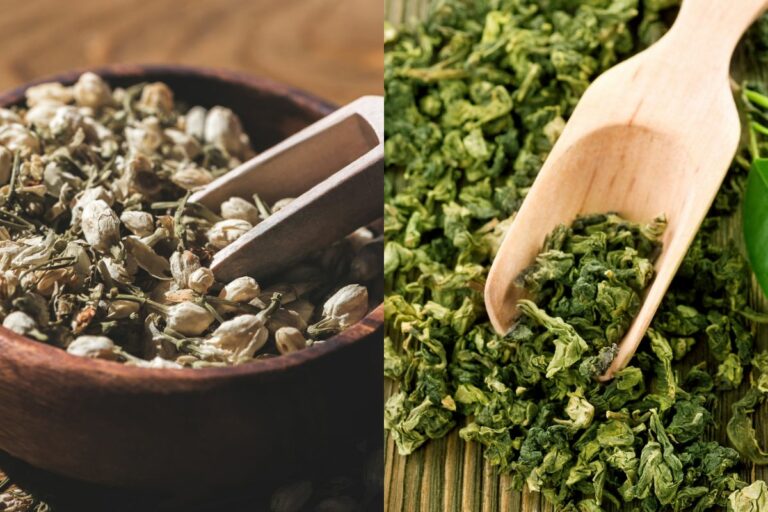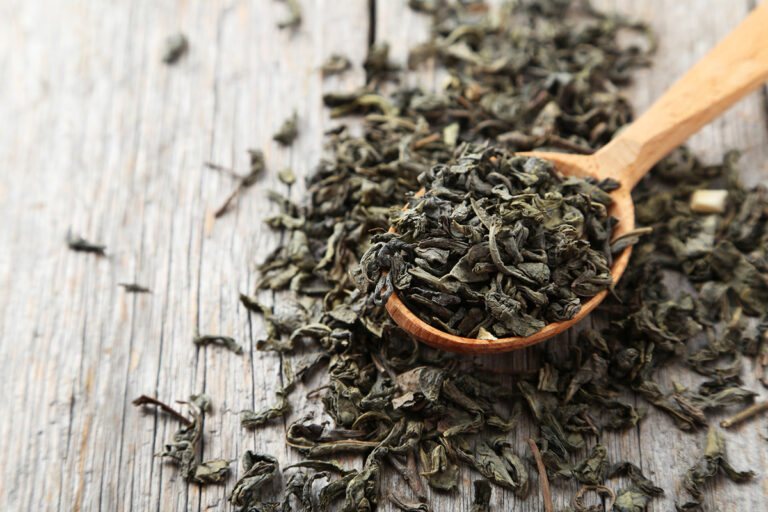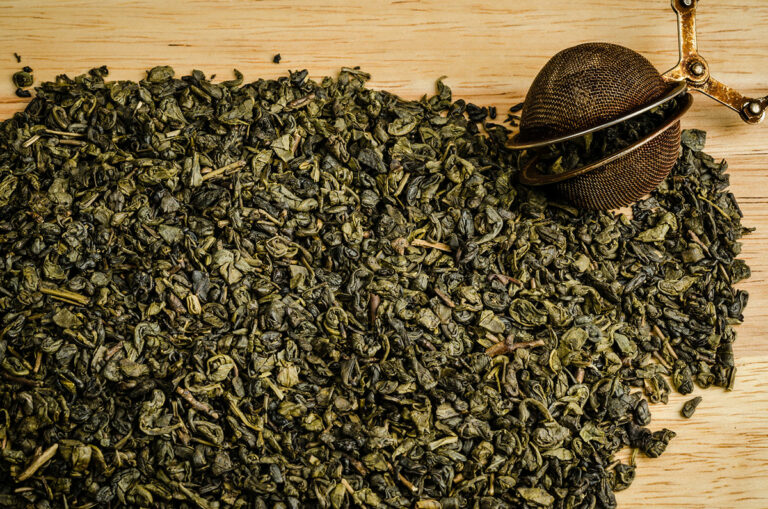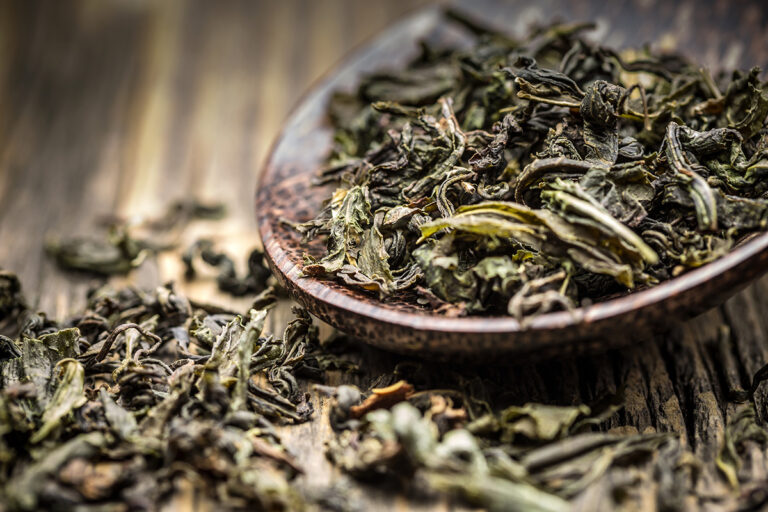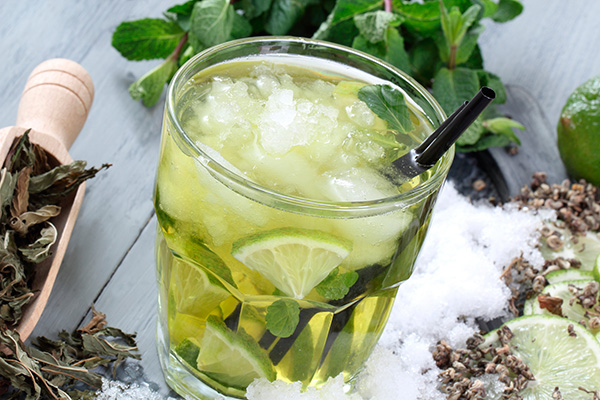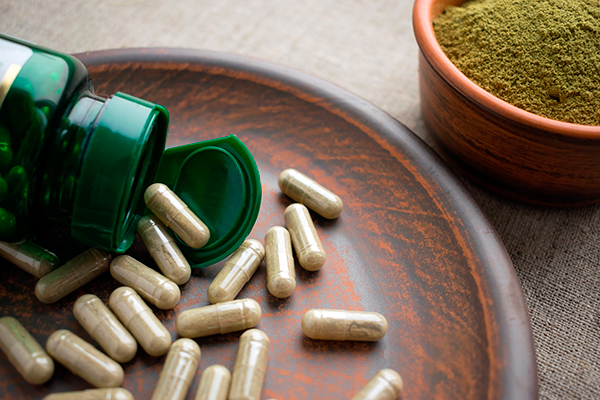Is Green Tea Fermented?
Green tea, the popular beverage that originated in China, has become a favorite for many across the world. Known for its numerous health benefits and delicate taste, it’s no surprise that green tea is a staple in many households.
But one question that often arises is: Is green tea fermented? The answer is no, green tea is not fermented. Fermentation refers to the process in which tea leaves undergo microbial activity, breaking down complex organic compounds and resulting in the development of unique flavors, aromas, and colors. This process is most commonly associated with Pu-erh and a few other dark teas but doesn’t happen with green, black, white, oolong, and the majority of other teas.
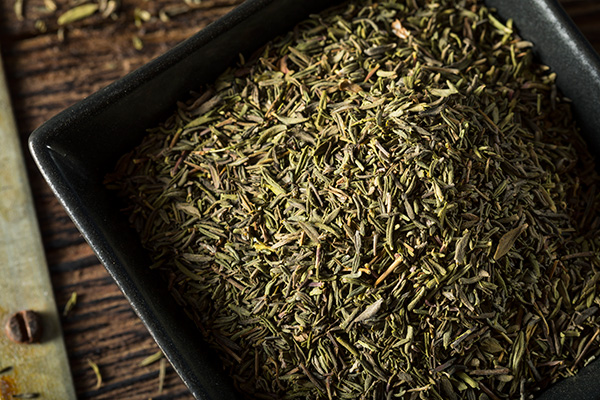
Fermentation and Oxidation: The Key Processes
To understand whether green tea is fermented or not, we need to explore the concepts of fermentation and oxidation.
Fermentation
Fermentation is a process that occurs when microorganisms, such as bacteria and yeast, break down organic compounds in a substance. This process can lead to changes in the taste, aroma, and appearance of the substance. In the context of tea, fermentation is commonly associated with the production of dark teas like Pu-erh, which undergoes a unique microbial fermentation process.
Oxidation
Oxidation, on the other hand, is a chemical reaction that occurs when tea leaves are exposed to oxygen. This process causes the polyphenols in the leaves to oxidize, which in turn affects the color, taste, and aroma of the tea. The degree of oxidation determines the type of tea produced – from minimally oxidized green tea to fully oxidized black tea.
Green Tea Processing
The processing of green tea involves several steps:
- Plucking: Harvesting the tea leaves by hand or machine.
- Withering: Allowing the leaves to lose some moisture and become more pliable.
- Fixation: Also known as “kill-green,” this step involves quickly heating the leaves to stop oxidation, preserving their green color and fresh flavor.
- Rolling: Gently rolling or pressing the leaves to break the cell walls and release the tea’s essential oils.
- Drying: Removing the remaining moisture from the leaves to prepare them for storage and sale.
So, Is Green Tea Fermented?
Based on the processing steps outlined above, green tea does not undergo fermentation. Instead, it undergoes minimal oxidation due to the fixation step, which quickly halts the oxidation process. This ensures that green tea retains its fresh, delicate taste and vibrant green color.
Another related question is whether green tea contains probiotics. The answer is no, pure green tea doesn’t contain probiotics.
Which Teas Are Fermented?
Fermented teas are those that undergo a microbial fermentation process, which alters their flavor, aroma, and color. Some types of fermented teas include:
- Pu-erh tea: Pu-erh tea, originating from the Yunnan province of China, is the most well-known fermented tea. It comes in two varieties – raw (Sheng) and ripe (Shou). Raw Pu-erh undergoes a natural, slow fermentation process over time, while ripe Pu-erh undergoes an accelerated fermentation process under controlled conditions. Both types of Pu-erh tea have a distinct earthy taste and are known to improve with age.
- Dark tea (Hei Cha): Dark tea is a category of fermented teas mainly produced in China. It includes teas like Liu Bao from Guangxi province, Fu Zhuan from Hunan province, and Tibetan Kang tea. These teas undergo a microbial fermentation process that imparts a unique flavor and characteristics to the tea.
- Kombucha: Kombucha is a fermented tea beverage made from black or green tea, sugar, and a symbiotic culture of bacteria and yeast (SCOBY). The fermentation process results in a slightly fizzy, tangy drink that contains beneficial probiotics.
While not traditionally considered fermented teas, some other teas experience a level of fermentation during their production:
- White tea: Although not intentionally fermented, white tea may undergo a small amount of natural fermentation during the withering process. The degree of fermentation is minimal, and it is not categorized as a fermented tea.
- Yellow tea: Yellow tea is a rare and unique type of tea that is slightly fermented during a unique “smothering” process, which involves covering the leaves to allow them to ferment gently. This process gives yellow tea a mild and sweet flavor, distinct from other types of tea.
It is important to note that the term “fermentation” in the context of tea production can be misleading. Often, the term is used interchangeably with “oxidation,” especially when discussing black tea or oolong tea. However, oxidation is a chemical process, while fermentation is a microbial process, as seen in the examples mentioned above.
Best Green Teas to Consider for Your Next Cup
If you decide to opt for green tea, despite it not being fermented, here are some of the best green teas we have tasted.
Conclusion
Green tea is not fermented. It undergoes minimal oxidation during its processing, which helps to preserve its characteristic green color, fresh taste, and numerous health benefits. While it is not fermented like some other types of tea, green tea still offers a unique and refreshing beverage option that has become a favorite for many around the world.

